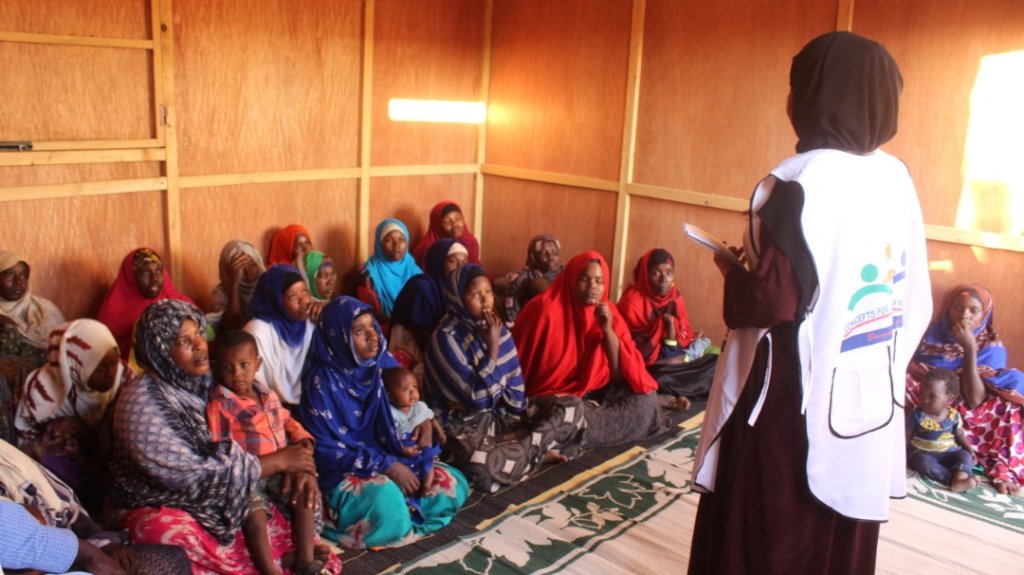 |
| Women empowerment & financial inclusion in Somalia - GlobalGiving |
In recent years, there has been a growing recognition of the importance of local leadership in African humanitarian initiatives. This is due to a number of factors, including the increasing complexity of humanitarian crises, the need for more sustainable and context-appropriate responses, and the desire to ensure that affected communities have a say in their own recovery.
What is local leadership?
Local leadership in humanitarian contexts refers to the role and influence of local actors, such as community-based organizations, traditional leaders, and religious groups, in the planning, implementation, and monitoring of humanitarian interventions. Local leaders can play a vital role in humanitarian response by:
- Providing insights into local needs and priorities: Local leaders are the ones who understand the intricate web of challenges and opportunities within their communities. They can identify specific needs and priorities that might be overlooked by external actors. Their deep knowledge allows for a more targeted and effective response.
- Mobilizing and coordinating community resources: In times of crisis, local leaders can mobilize community resources rapidly. They are connected to local networks and can engage volunteers, local businesses, and community members to provide immediate assistance.
- Building trust and confidence with affected communities: Trust is a crucial element in humanitarian work. Local leaders are often known and respected figures in their communities. This trust facilitates smoother interactions between humanitarian organizations and the affected populations.
- Ensuring that humanitarian interventions are culturally appropriate and sustainable: Cultural sensitivity is vital in humanitarian work. Local leaders can guide organizations in understanding local customs and traditions. They can help design interventions that respect these cultural aspects, ensuring that the aid is not only effective but also sustainable in the long run.
Why is local leadership important in African humanitarian initiatives?
There are several compelling reasons why local leadership is paramount in African humanitarian initiatives.
- Deep Understanding of Local Needs and Priorities: Local leaders have a profound understanding of the needs and priorities of their communities. They live among the affected population, and their insights are invaluable for tailoring aid effectively.
- Mobilization of Local Resources: In times of crisis, a rapid response is often critical. Local leaders can mobilize local resources quickly, ensuring that aid reaches those in need promptly.
- Cultural Appropriateness: Aid that respects local customs and traditions is more likely to be accepted and sustainable. Local leaders can ensure that humanitarian interventions align with the cultural values and practices of the affected communities.
- Trust and Confidence Building: Building trust is a long-term investment in humanitarian work. Local leaders, already trusted figures in their communities, can facilitate stronger relationships between aid organizations and those in need.
- Monitoring and Evaluation: Local leaders are well-placed to monitor and evaluate humanitarian interventions. Their feedback can help organizations make real-time adjustments to ensure effectiveness.
Examples of successful African humanitarian initiatives led by local actors
There are remarkable examples of successful African humanitarian initiatives led by local actors.
Somali Women's Development and Welfare Association (SWADWA)
For over three decades, SWADWA has been at the forefront of providing humanitarian assistance to Somali women and children. By establishing a network of community-based organizations throughout Somalia, they have been able to reach even the most remote and vulnerable communities. Their approach highlights the power of local leadership in delivering effective aid.
Nigerian Red Cross Society
The Nigerian Red Cross Society has a long history of responding to humanitarian crises in Nigeria. They played a leading role in the response to the ongoing Boko Haram insurgency, providing a wide range of humanitarian assistance, including food, water, shelter, and medical care. Their local presence and expertise have been instrumental in addressing the crisis.
Challenges and opportunities
While there is a growing recognition of the importance of local leadership in African humanitarian initiatives, several challenges need to be addressed.
- Lack of Funding and Capacity Support for Local Actors: International donors often prefer to fund large international NGOs, leaving local actors under-resourced and unable to fully participate in humanitarian response. Increasing funding and capacity support for local actors is crucial.
- Coordination Between Local and International Actors: Effective coordination between local and international actors is essential to avoid duplication of effort and gaps in service delivery. Forums and mechanisms that facilitate better coordination can enhance the overall impact of humanitarian initiatives.
Conclusion
Local leadership is essential for the effective and sustainable delivery of humanitarian assistance in Africa. Local leaders possess a deep understanding of their communities, can mobilize local resources, ensure cultural appropriateness, and build trust. International donors and humanitarian organizations should support local leadership by providing funding and capacity support and improving coordination. By doing so, we can help build more resilient communities and reduce the need for humanitarian assistance in the long term.
In a continent as diverse and dynamic as Africa, local leadership is a valuable asset in the path to recovery and resilience.
